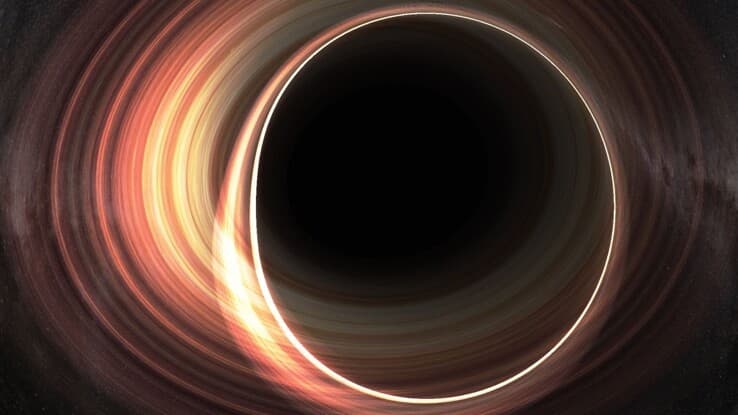
Black holes could be a solution to our energy crisis
What's the story
Avi Loeb, a professor from Harvard has put forth a groundbreaking concept in his latest research paper, "Illumination of a Planet by a Black Hole Moon as a Technological Signature." The study, published in the Research Notes of the American Astronomical Society, suggests that advanced civilizations could harness energy from a "Black Hole Moon" orbiting their home planet. This idea builds upon Nobel laureate Roger Penrose's 1971 theory about extracting energy from rotating black holes.
Concept explained
The concept of a 'black hole moon'
Loeb's concept involves creating a small black hole, with a mass of 100,000 tons, that would orbit its home planet. This black hole would emit Hawking Radiation, named after physicist Stephen Hawking who theorized in 1975 that black holes emit photons, neutrinos, and some larger particles. However, without intervention, such a black hole would evaporate in approximately 1.5 years due to this radiation emission.
Energy extraction
Maintaining and harnessing energy
Loeb suggests that by adding relatively small amounts of matter (2.2kg) per second onto it, the black hole could be maintained while providing an endless supply of power. He described this system as "the most efficient engine" he has ever contemplated. "The fuel is converted to energy with the perfect efficiency of 100%, because the mass falling into the black hole is ultimately coming out as Hawking radiation," Loeb explained via email to Universe Today.
Energy comparison
Outperforming current energy sources
Loeb's proposed black hole could continuously supply 40 quadrillion Watts, significantly outperforming current energy sources. "The global energy use is a few terra-Watts, 10 thousand times less than the power supply of this black hole," Loeb stated. He further highlighted that such a black hole engine could use any form of matter as fuel, including waste materials.
Technological marker
Technosignature of advanced civilizations
Loeb's research also suggests that the illumination from such a black hole could serve as a potential technosignature for future SETI surveys. He theorized that "the black hole engine could be discovered as a rogue rocky planet that is illuminated by a gamma-ray moon with no stellar-mass companion." This implies that if evidence for such an engine were found, it could indicate the existence of highly advanced technological civilizations.